Photo: Francis Sylvain/AFP via Getty Images
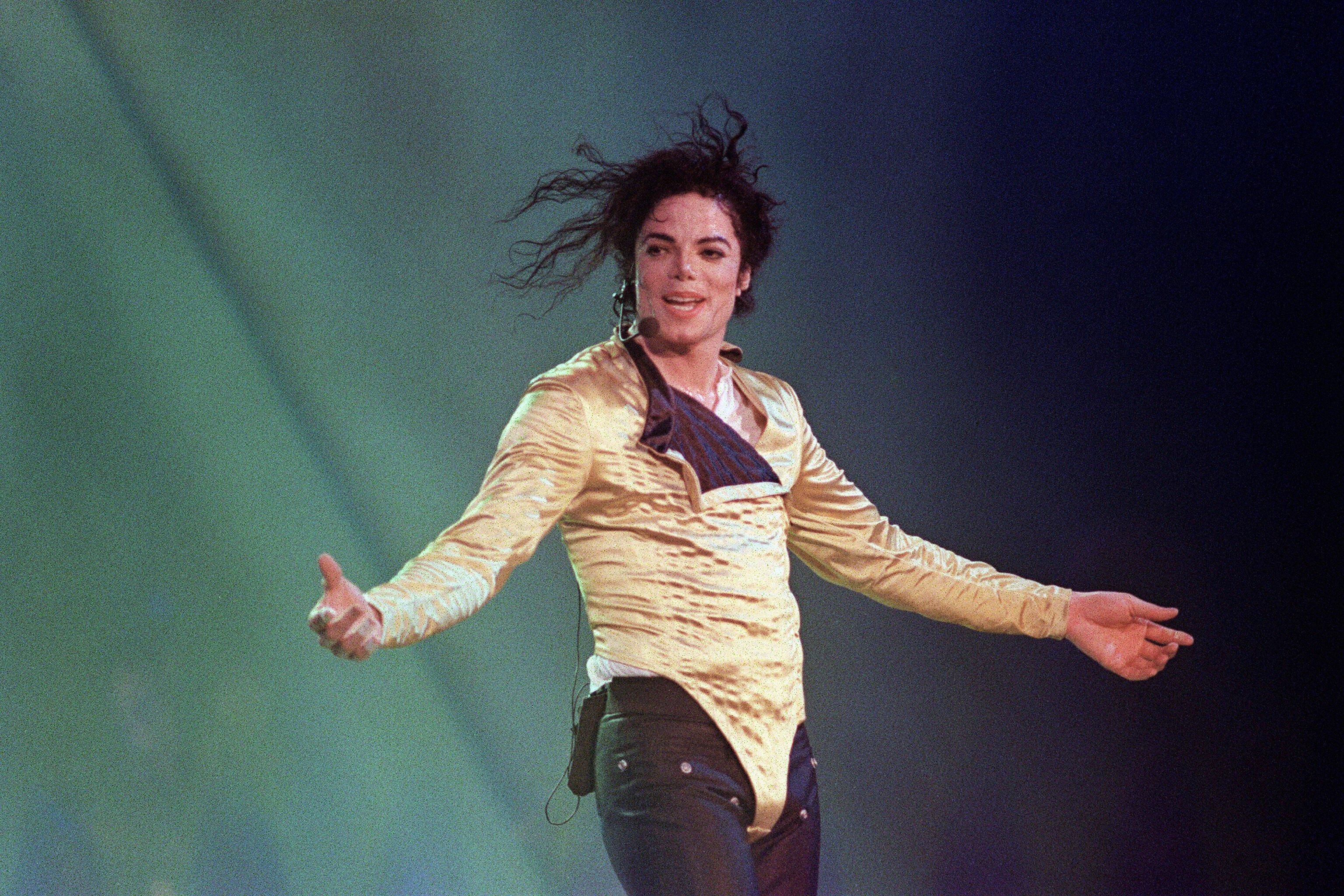
news
On This Day In Music: Michael Jackson Passes Away In Los Angeles At Age 50
The music world suffered a catastrophic blow on June 25, 2009, when the King of Pop died in Los Angeles at just 50 years old. Fifteen years later, reflect on this momentous day.
Nearly 15 years since its release, it’s still wrenching to watch the documentary Michael Jackson’s This Is It — a glimpse of one of the greatest concerts that never happened.
Revisiting behind-the-scenes footage of the planned residency at London’s O2 Arena, it’s clear Michael Jackson was at the top of his game. The Kenny Ortega-directed film takes us through rehearsals, dancer auditions, costume design, and more, as the run of 50 shows loomed.
Despite any personal or medical issues the embattled King of Pop faced, he danced and sang terrifically. All 50 dates had sold out; after more than a decade off the road, This Is It was bound to be a momentous pop event.
But the residency would never happen, for the most tragic reason possible: on June 25, 2009, after returning home from a past-midnight rehearsal, Jackson passed away from acute propofol intoxication, administered by his personal physician, Conrad Murray. Jackson was 50.
The news rattled the world, causing major internet platforms including Google, AOL Instant Messenger, Twitter, and Wikipedia to be pushed to the breaking point with significant traffic spikes. The following year, Murray was convicted of involuntary manslaughter, and sentenced to four years in prison. (He was released after serving nearly two years, due in part to good behavior.)
“Our beloved son, brother, uncle and father of three children has gone so unexpectedly, in such a tragic way and much too soon,” read a statement from the Jackson family. “It leaves us, his family, speechless and devastated to a point, where communication with the outside world seems almost impossible at times.”
As Jackson's music sales spiked, Jackson’s memorial service was held on July 7, 2009, at the Staples Center. Berry Gordy, Brooke Shields, and Smokey Robinson offered eulogies, and an all-star lineup — including Mariah Carey, Stevie Wonder, Lionel Richie, and others — performed Jackson’s iconic songs.
Of course, true legends never die — but a world without the King of Pop has been a little dimmer. On this day in music, crank up Thriller or Bad, and remember one of the greatest entertainers who ever lived.
Explore More History-Making Moments In Music
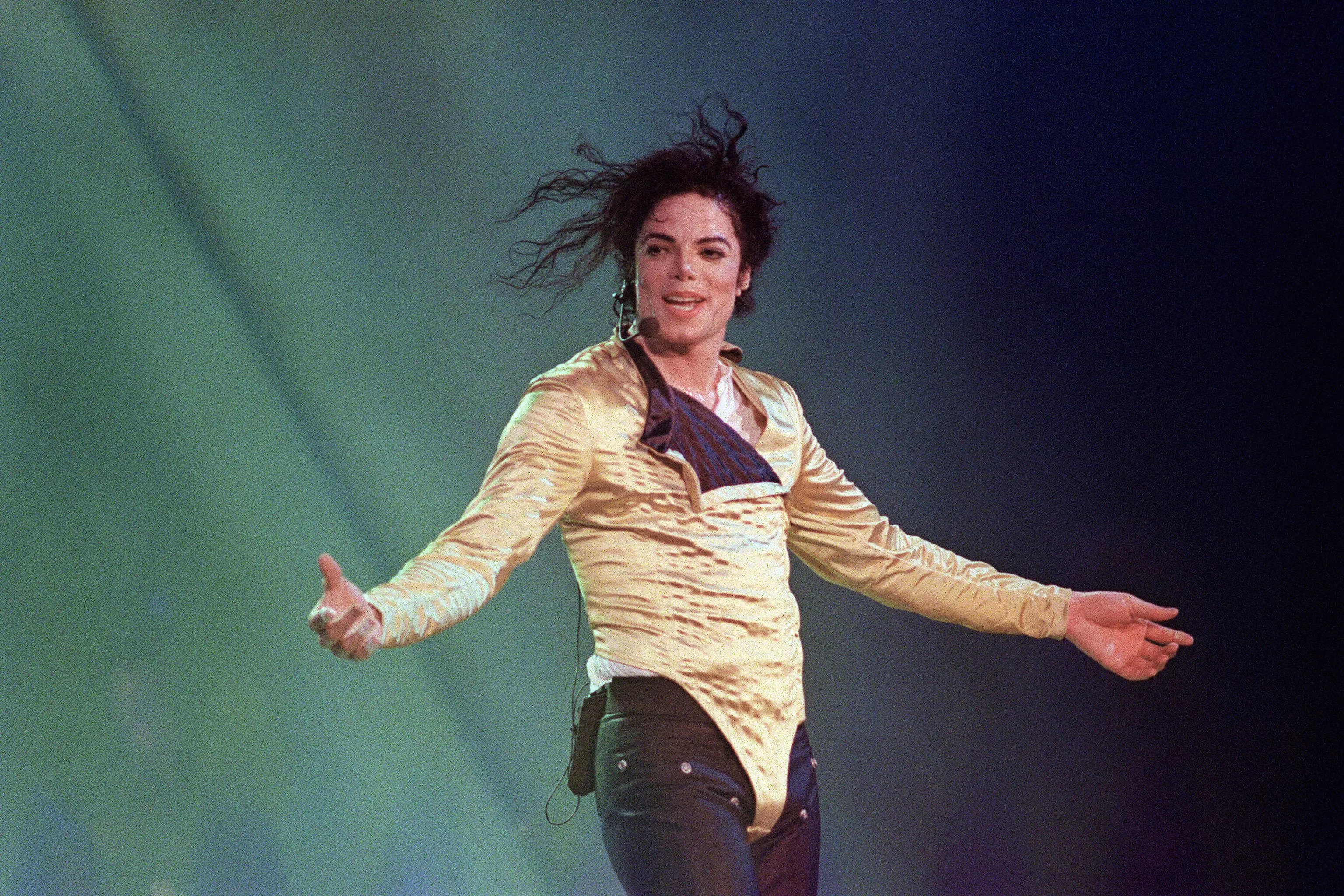
On This Day In Music: Michael Jackson Passes Away In Los Angeles At Age 50
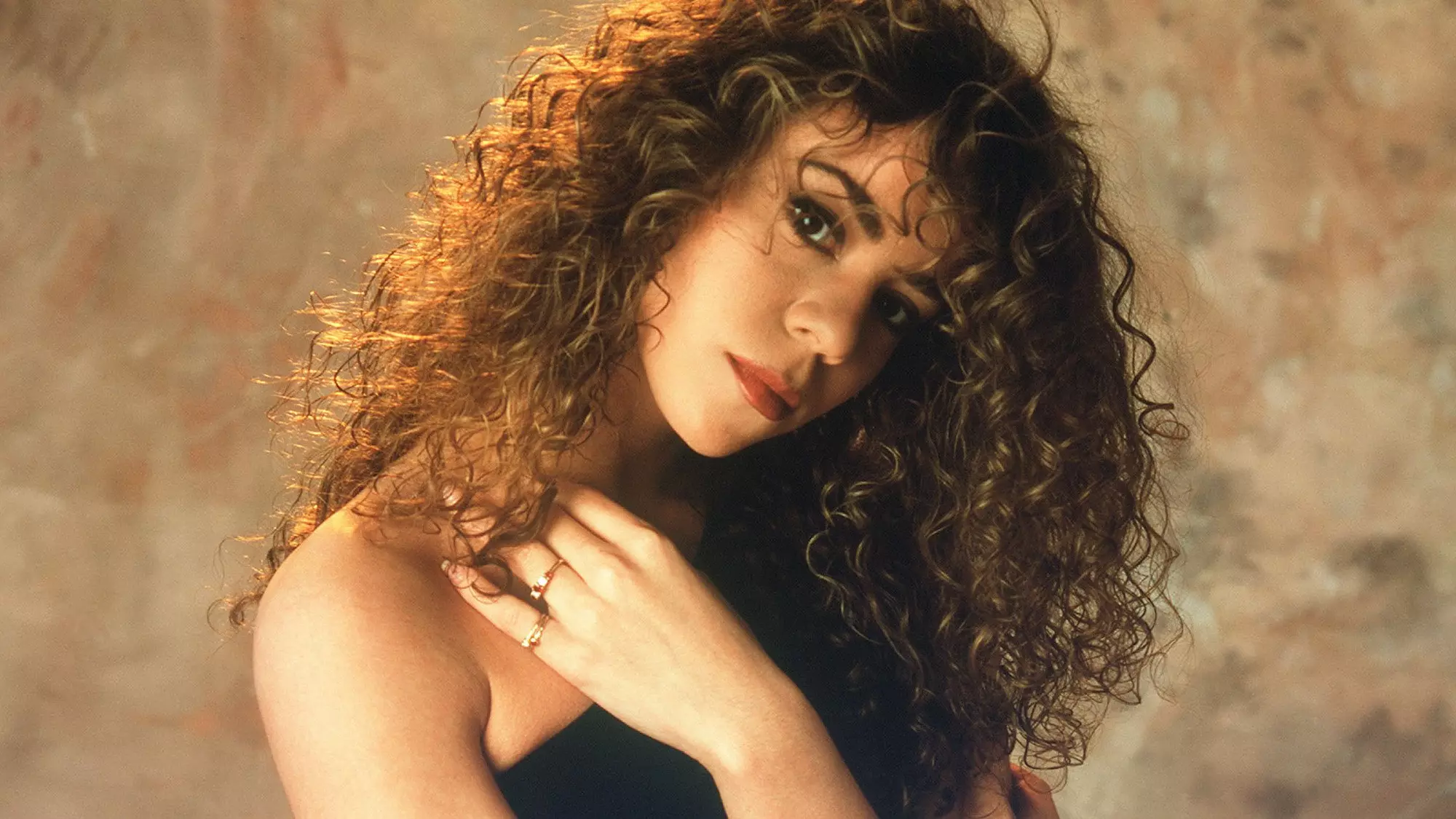
On This Day In Music: Mariah Carey Releases Her Self-Titled Debut Album
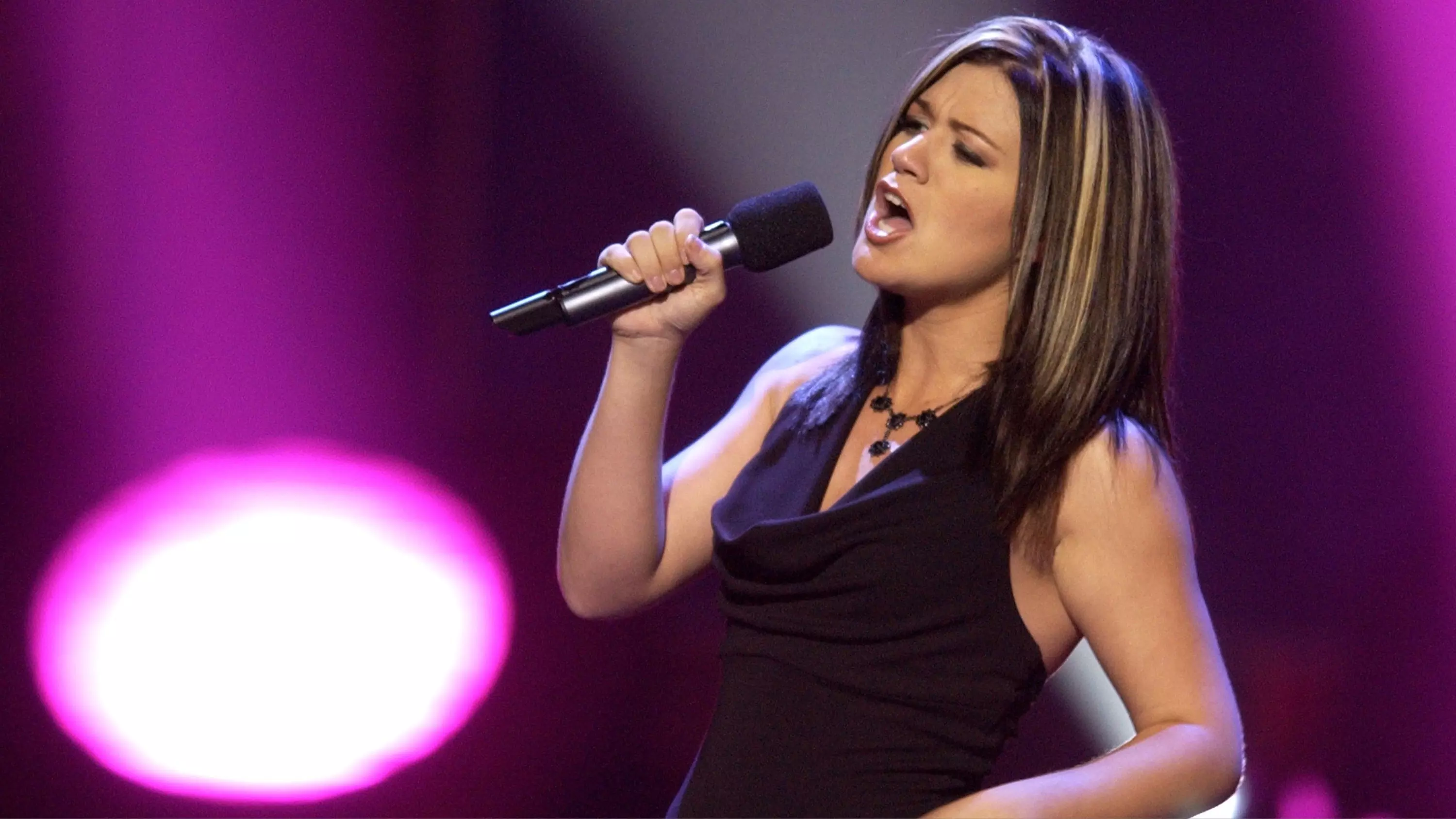
On This Day In Music: "American Idol" Premieres On Fox Network
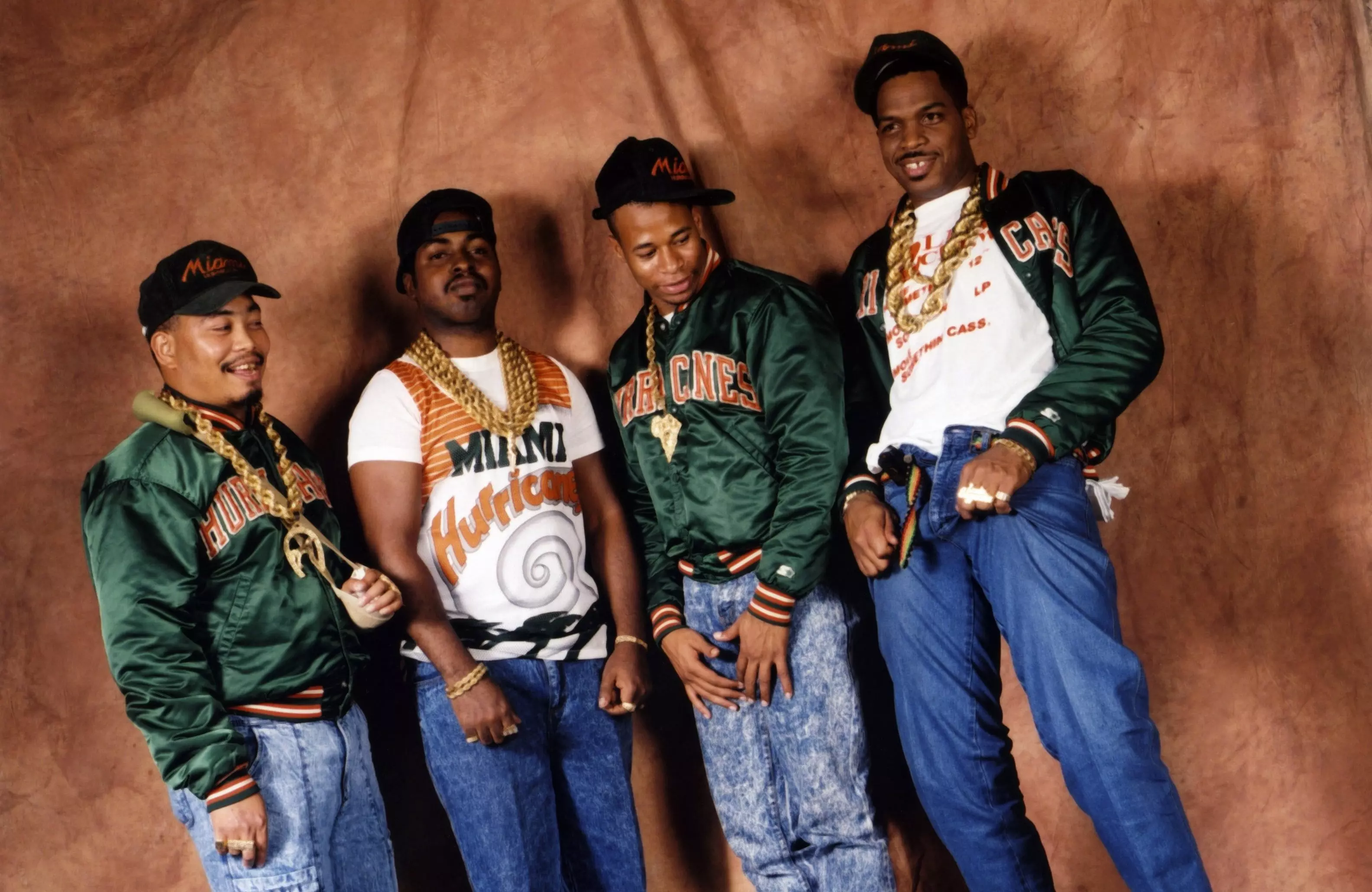
On This Day In Music: 2 Live Crew's 'As Nasty As They Wanna Be' Becomes First Album Declared Legally Obscene, Anticipates First Amendment Cases
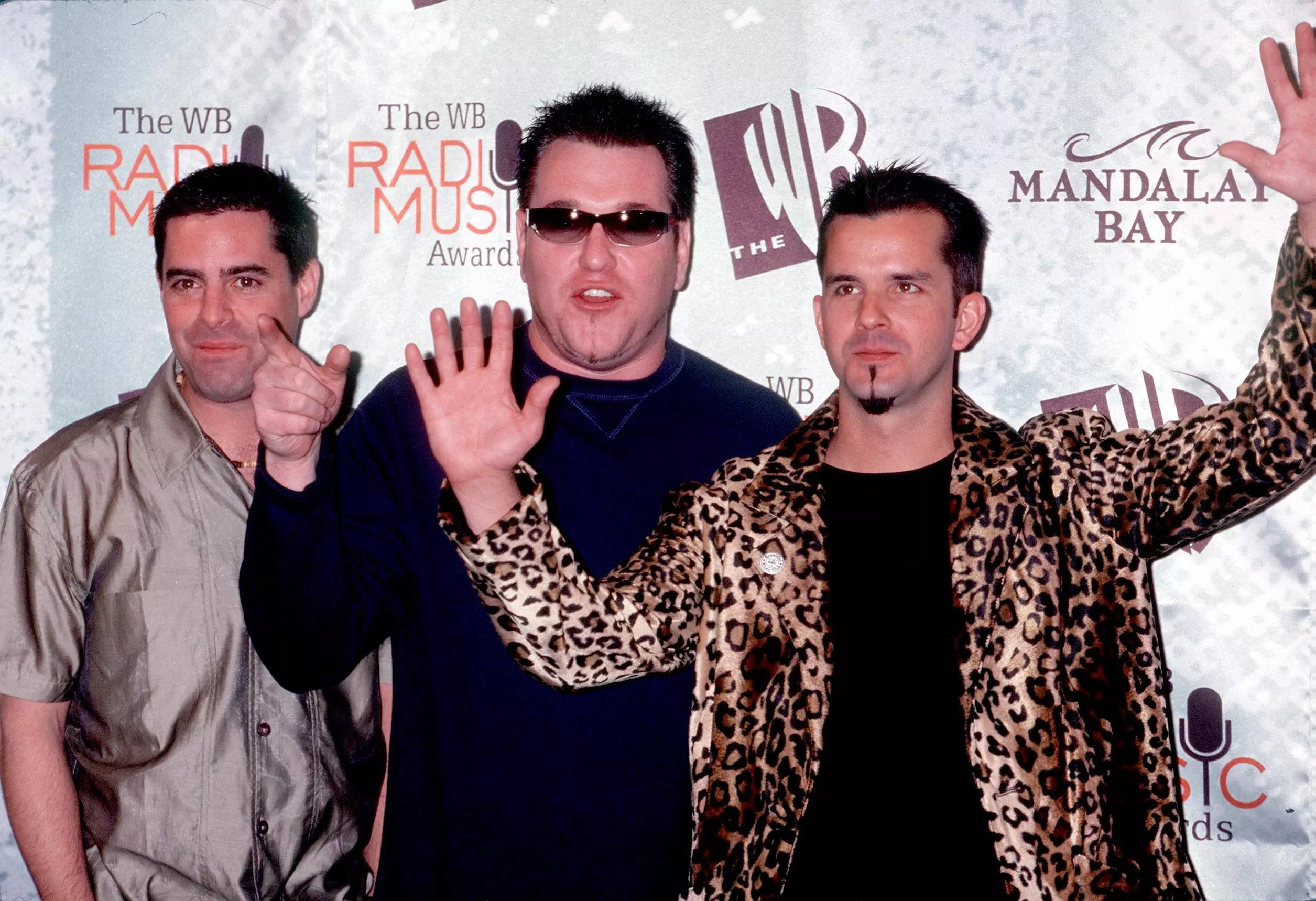
On This Day In Music: Smash Mouth Release "All Star," Their Titanic Single From The 'Shrek' Soundtrack
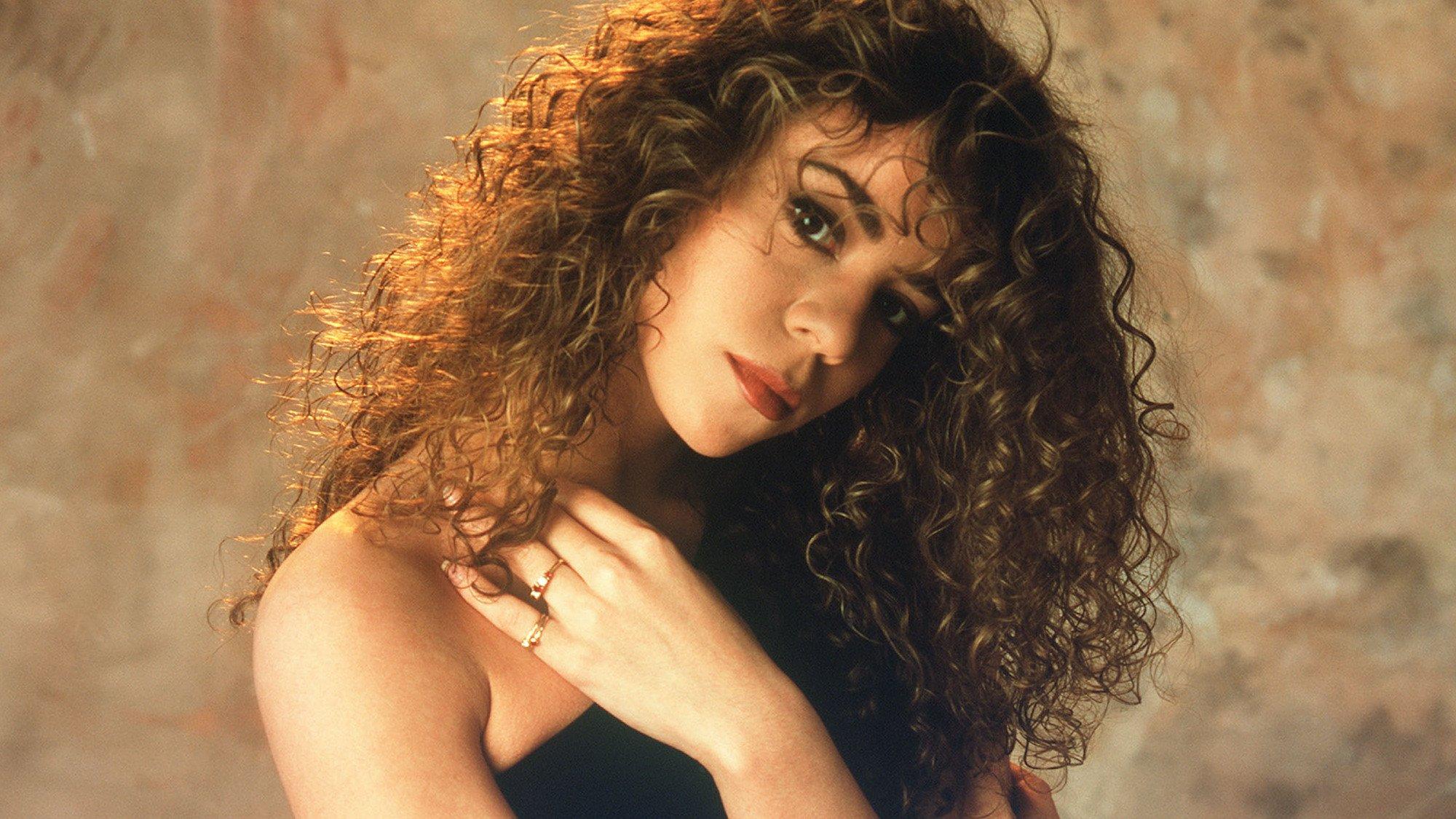
Photo: Frank Micelotta
news
On This Day In Music: Mariah Carey Releases Her Self-Titled Debut Album
Released June 12, 1990, Mariah Carey's iconic debut spent 11 weeks atop the Billboard 200. Revisit the impressive — and GRAMMY-winning — album, which started it all for one of music's great divas.
Years before she was dubbed the "Queen of Christmas" or became the recipient of the Recording Academy's Global Impact Award, Mariah Carey was making a name for herself with R&B earworms and impressive vocal range.
Released 34 years ago today, the New-York native's self-titled debut album featured a tasteful mix of slower, emotional ballads and upbeat anthems. Mariah Carey's lead single, "Vision of Love," offered listeners a first taste of her infamous whistle register and incredible range — it also caught the ear of Academy voters.
Carey was nominated in five categories at the 1991 GRAMMYs, and took home golden gramophones for Best New Artist and Best Pop Vocal Performance, Female. The album broke chart records, established Carey as a household name, and ultimately paved the way for her illustrious career.
"It seems like everything I did in the first year that I came out with my first album is like a blur because everything happened so fast for me and I never had the chance to sit down and go 'Wow, this is actually happening,'" Carey recalled in an interview with MTV. "I just, like, went straight ahead."
The success of Mariah Carey was a mix of fate, talent and perseverance. In 1988, a teenage Carey left her family home in Long Island to pursue a music career. She brought with her a four-song demo tape made during her high school years with songwriter/producer Ben Marguiles (who also co-wrote Mariah Carey with several other writers). She continued to shape up the demo tape as she worked multiple jobs, and eventually crossed paths with Latin GRAMMY winner Brenda K. Starr.
Carey found herself singing back-up vocals for the artist at live performances, and caught Starr's attention with her astonishing voice. Recognizing her exceptional talent, Starr played a pivotal role in launching Carey's career to new heights.
"I really didn't want to do it, but I said it's gotta be better than what I'm doing now," Carey confessed of the audition in Chris Nickson's book, Mariah Carey Revisited: Her Story. "So I went to the audition, and Brenda was such a great person."
Eventually, Starr brought Carey along to an industry party, where she was able to get her demo tapes into the hands of Tommy Mottola, the then-president of Columbia Records. With stars in his eyes, Mottola listened to the tape and quickly signed Carey to the label.
Upon the album's release, critics overwhelmingly praised 20-year-old Carey's vocal prowess, noting how her debut set a new standard that raised expectations for artists across various genres to follow. The New York Times noted that the release came with "more fanfare and promotional hoopla than [Columbia Records] has bestowed on a new young talent in years." The paper continued to lavish praise on Carey's "pop-gospel voice that is impressive in its power and range and that has elaborate vocal embellishments strikingly reminiscent of Whitney Houston's."
The album featured a whopping four Hot 100 chart-toppers: "Vision of Love," "Love Takes Time," "Someday," and "I Don't Wanna Cry." The album itself spent 11 weeks atop the Billboard 200 — Carey's lengthiest No. 1 to date.
Twenty-four years and 15 studio albums later, Mariah Carey transcends time. The album not only serves as representation of Carey’s unwavering determination, but a formative piece of art that jump started a truly spectacular career. While the five-time GRAMMY winner is duly given her flowers for her complex and sprawling catalog, an equal sized bouquet should be laid at the feet of her debut album, which remains a timeless paragon for R&B artists to draw inspiration from.
More Mariah Carey News & Music

Camila Cabello's Sonic Evolution To 'C, XOXO': How She Went From Pop Princess To Club Star

Omar Apollo Embraces Heartbreak And Enters His "Zaddy" Era On 'God Said No'

Aaron Frazer Dives 'Into The Blue': How His New Album Goes Further Beneath The Surface Than Ever Before

Watch Olivia Lunny Cover “As It Was”
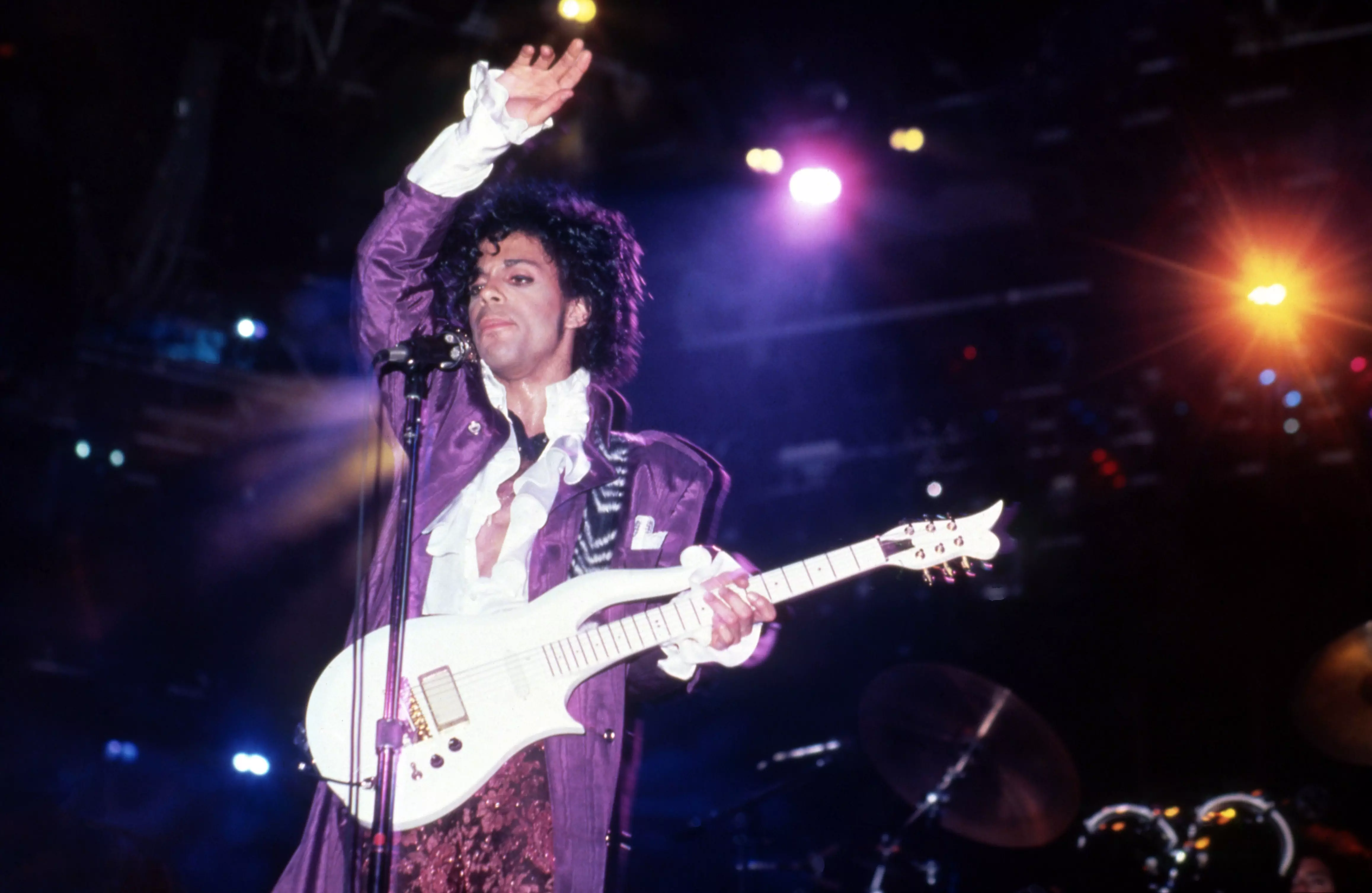
7 Reasons Why Prince's 'Purple Rain' Is One Of Music’s Most Influential Albums

Photo: Jeremy Daniel
feature
50 Years In, "The Wiz" Remains An Inspiration: How A New Recording Repaves The Yellow Brick Road
From original groundbreaking production to its current Broadway revival, "The Wiz" stands the test of time. A new cast recording will be released June 14, which honors the strength of the music and the message behind it.
Of the many reviews of "The Wiz" over the years, one of the most famous comes from none other than Broadway legend Stephen Sondheim.
When asked what his favorite Broadway show is (besides his own), Sondheim named "The Wiz" and said it’s because, "it's the one show which makes you feel better when you come out of it than you did when you walked in."
The original production of "The Wiz" had its pre-Broadway tryout in 1974, with a Broadway premiere in January 1975. In the decades since, it's remained beloved among musical theatre fans, as well as a staple of community theatre. Not only does "The Wiz" boast a 50 year legacy and the distinction of being one of the first shows with an all-Black cast, but the musical itself stands the test of time because of the strength of the music and the message behind it. To accompany a tour and Broadway revival at the Marquis Theatre, the 2024 revival cast recording comes out on June 14, paving the yellow brick road for a new generation of fans to ease on down and enjoy the journey.
While many people remember the 1978 Diana Ross film The Wiz (which also starred a young Michael Jackson), it was a critical and box office flop. The Broadway show, meanwhile, had more success. The show won seven Tony Awards including Best Musical. The original cast recording is the 30th highest selling cast album of all time. In 2017, the original Broadway cast recording of "The Wiz" was selected for preservation in the National Recording Registry by the Library of Congress as being "culturally, historically, or aesthetically significant."
The tale of Dorothoy's arrival in and travels through Oz has been in the cultural lexicon for over 100 years. "The Wonderful Wizard of Oz" was written in 1900 and, 39 years later, the Technicolor Judy Garland movie cemented the iconic story. While "The Wiz" (full title "The Wiz: The Supersoul Musical ‘Wizard of Oz'") is still primarily set in the magical land of Oz, the creators and production team made significant, conscious choices to place "The Wiz" among Black culture of the time. The new production, with an updated book by Amber Ruffin, strives to do the same.
Of "The Wiz," the Smithsonian — which displays costumes from the original production in their National Museum of African American History and Culture — says it is "a tale that celebrates African American street style as a unique subculture and unapologetically American way of life. The song lyrics, script, sets, and costumes all reference and champion the struggles and triumphs of African Americans."
Analysis of the original cast album cites influences from popular music of the time, along with jargon. Most notably, however, and what Sondheim responded to, is that all the songs in "The Wiz" have a message and emotional core that moves the story forward both literally and within each characters’ arc. Instead of the repetitive "Follow the Yellow Brick Road" from the film, "The Wiz’s" "Ease on Down the Road" encourages the characters and then the audience to keep on keeping on with their goals. Lyrics such as "Cause there may be times/ When you think you lost your mind/ And the steps you're takin'/ Leave you three, four steps behind/ But the road you're walking/ Might be long sometimes/ You just keep on truckin'/ And you'll just be fine, yeah," can be applied to anyone’s life problems — not just Dorothy and Company on their fantastical journey.
After vanquishing the Wicked Witch, Evilene, the principals and ensemble sing, "Everybody Rejoice/ Brand New Day," a celebratory song that exudes joy. They sing, "We always knew that we'd be free somehow," which, when placed in American theatre and sung by an all Black ensemble, holds more historical significance than a simple song about escaping capture. Glinda appears and doesn’t just tell Dororthy to click her heels; she tells her to "Believe in Yourself" not only that she can go home, but that she should believe in her own feelings and power inside her heart.
Finally, "Home," which some say takes the place of the classic "Somewhere Over the Rainbow," speaks to a broader character arc and feels more like a pop anthem than a musical theatre song. It has been released as a single throughout the show’s history, including last year by Brandi Carlile to go with the "Ted Lasso" finale. While Garland’s Dorothy learns in the end, "There’s no place like home," "The Wiz’s" Dorothy sings, "And I've learned that we must look/ Inside our hearts to find/ A world full of love/ Like yours, like mine/ Like home."
The original Broadway cast recording is hard to find. It can be purchased on streaming services like Apple, but on Spotify, only the single version of "Home" is playable. "The Wiz: Live!," a well-received televised version, does have a readily streamable soundtrack, but a new Broadway cast album is very welcome. The cast features Nichelle Lewis as Dorothy and television and Broadway veteran Wayne Brady as the titular role; the stage production updates both script and set to feel more more contemporary. Meanwhile, the score has been lightly "refurbished" with additional songs.
"The original ‘Wiz’ was a definitive product of the 1970s in its glam and excess," Brady told the New York Times. "Ours is of this time: We have this place and can just be. From the queerness onstage to the costumes, the musicality, light and bricks. I think instead of fighting to be seen, this ‘Wiz’ is, ‘Oh, you see us.’"
Sondheim’s praise of "The Wiz" is particularly magnanimous because Sondheim’s own show "Gypsy" had a revival in 1974, the same year as the original production of "The Wiz," which meant the two shows battled it out both in box office and awards. A revival of "Gypsy" starring Audra McDonald and directed by George C. Wolfe has just been announced, so both "The Wiz" and "Gypsy" will again be on Broadway. This time, both shows will be led by Black actors and directors.
Broadway has struggled post-pandemic, and America has a lot to learn about love when it comes to race, but, with the release of "The Wiz" back into the world, we get a much-needed infusion of joy. Throughout the last 50 years, there have been many stories and real events that point to a world that is anything but full of love, but, through it all, "The Wiz" holds onto hope.
New Broadway Musicals To See This Spring: "Hell's Kitchen," "The Wiz" & More

Photo: Steve Granitz / GettyImages
news
On This Day In Music: "American Idol" Premieres On Fox Network
For decades, "American Idol" has been instrumental in discovering some of music’s biggest names and pioneering the reality TV contest genre. As the show enters its 22nd run, here’s a look at how it has become an iconic household staple across the country.
For countless Americans, "American Idol" is intertwined with core memories as a show that had families eagerly glued to their TVs twice a week. It brought generations together, creating moments of both suspense and excitement that are still remembered today, as the show continues to run in its 22nd season.
Created by visionary entrepreneur Simon Fuller, "American Idol" premiered on June 11, 2002, as a fresh spin-off of the British program "Pop Idol." It revolutionized how Americans engaged with reality TV through its interactive, viewer-driven voting system, which encouraged audience participation in the success of their favorite contestants. The show also offered viewers a glimpse into contestants' candid backstories and personal journeys, anchoring emotional investment and skyrocketing the show's popularity.
The show's debut season featured a dynamic trio of judges: singer Paula Abdul, TV personality Simon Cowell, and producer Randy Jackson. Their contrasting personalities brewed a chemistry as captivating as the hopeful performances. Abdul’s warmth, Cowell's blunt wit, and Jackson’s humor added extra layers of entertainment, making the twice a week broadcasts a must-watch.
The first season of "American Idol" also unforgettably introduced the country to Kelly Clarkson. Since her debut — with a heart-tugging backstory about being the average girl-next-door with big dreams — Clarkson has gone on to tour the world, host her own TV talk show, and secured her spot as one of music’s most beloved talents.
"I had dreams since I was a little girl that I wanted to be on the GRAMMYs, or some award show and sing on there," Clarkson mentioned in her pre-audition interview. Flash forward 22 years, the pop singer has accumulated 17 GRAMMY nominations and three wins, propelled by a powerful vocal gift.
Other artists who launched their careers from the show's platform include Jordin Sparks, Carrie Underwood, Adam Lambert, and Jennifer Hudson, who each serve as testament to the show’s impact in music.
"American Idol" has not only opened our eyes to some of our favorite musicians, but it also has given us some of our favorite pop culture moments.
A video that frequently resurfaces on social media captures a memorable moment between Katy Perry and contestant Noah Davis, where they bond over the slang term 'wig'.
"No, it’s not your language. It’s just for us," Perry joked to her fellow judges, Lionel Richie and Luke Bryan, when they questioned the term’s meaning.
After two decades on air, "American Idol" has etched a lasting legacy in pop culture. It has paved the way for other reality TV music shows and created lasting memories for music fans along the way.
“The show transcends age, gender, ethnicity, everything,” Underwood told Billboard in 2005.
Explore More History-Making Moments In Music

On This Day In Music: Michael Jackson Passes Away In Los Angeles At Age 50

On This Day In Music: Mariah Carey Releases Her Self-Titled Debut Album

On This Day In Music: "American Idol" Premieres On Fox Network

On This Day In Music: 2 Live Crew's 'As Nasty As They Wanna Be' Becomes First Album Declared Legally Obscene, Anticipates First Amendment Cases

On This Day In Music: Smash Mouth Release "All Star," Their Titanic Single From The 'Shrek' Soundtrack
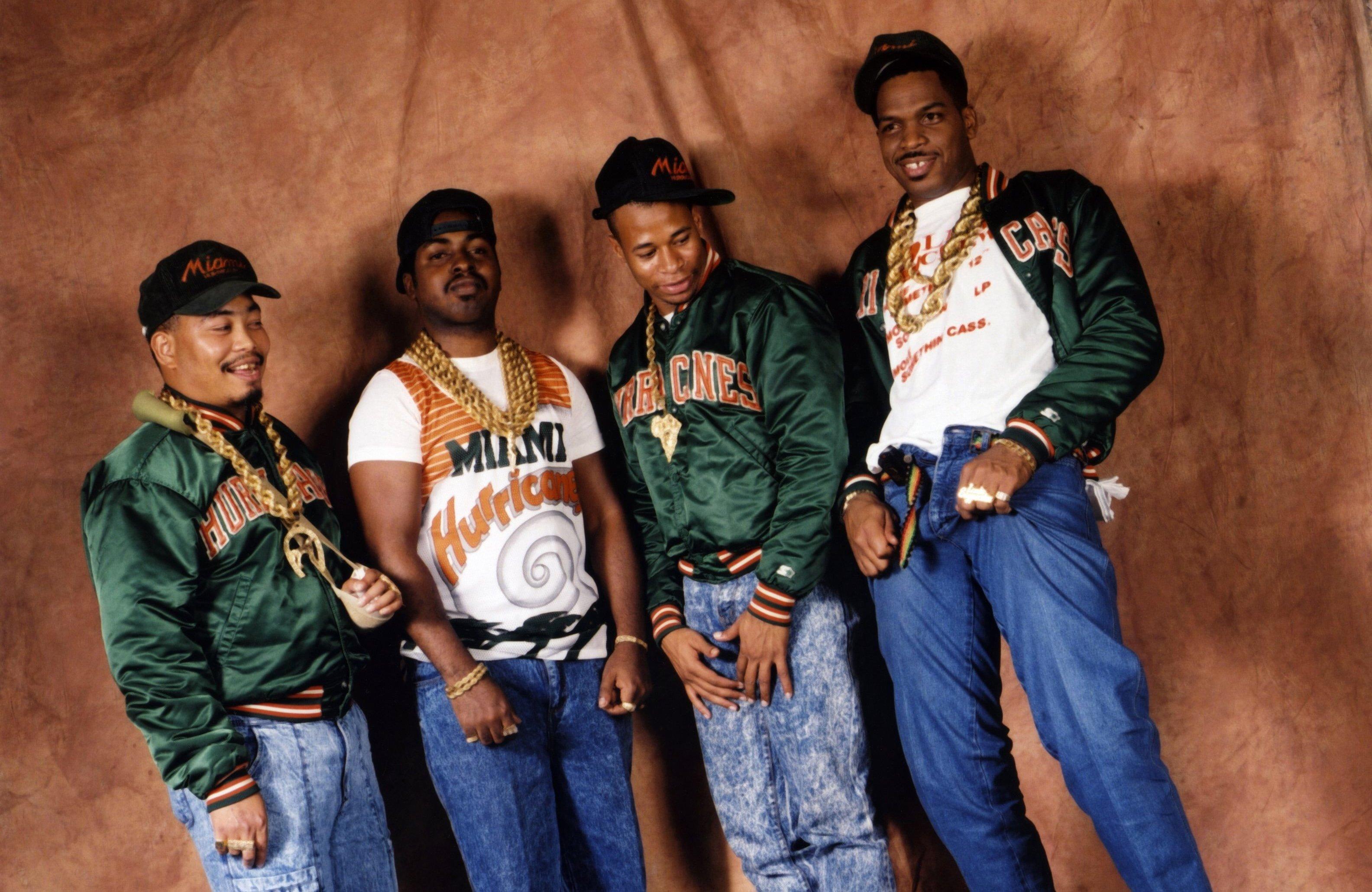
Photo: Michael Ochs Archives/Getty Images
feature
On This Day In Music: 2 Live Crew's 'As Nasty As They Wanna Be' Becomes First Album Declared Legally Obscene, Anticipates First Amendment Cases
Known for their raunchy take on hip-hop, 2 Live Crew made history when 'As Nasty As They Wanna Be' was declared legally obscene. Thirty-four years later, here's how they fought back and turned their battle into a landmark First Amendment case.
When 2 Live Crew released their third studio album, they never imagined it would lead to a mammoth of legal entanglements. In 1989, the Miami-based hip-hop group dropped As Nasty As They Wanna Be, a title that held true throughout the ensuing legal battle.
In an effort to put their music on the map and distinguish themselves in the rap game, amidst one of hip-hops finest eras, the album featured sexually explicit themes and graphic content, leading to extreme popularity within pop culture. However, this widespread attention wasn’t all in a good light.
In Broward County, Florida, Sheriff Nick Navarro took a stand against the group, endeavoring to prevent local record store owners from selling the provocative album. In defiance of this censorship, 2 Live Crew filed a lawsuit in federal court, seeking legal recourse to halt the sheriff’s crackdown, prevent restrictions on album sales and legally defend their work as non-obscene.
Through the court's ruling, they deemed the work legally obscene and prohibited retailers from selling the album in Florida’s Broward, Dade, and Palm Beach counties.
Following the ruling, Florida record store owner Charles Freeman was arrested for selling As Nasty As They Wanna Be and three 2 Live Crew members were also arrested for performing their explicit music live at a nightclub in Hollywood, Florida.
Challenging the initial ruling with tenacity, the group’s record label, Luke Records, founded by 2 Live Crew member Luther Campbell, brought the case in front of the Eleventh Circuit Court of Appeals.
In this legal battle, the Eleventh Circuit Court applied the Miller Test, a benchmark for obscenity set by the United States Supreme Court’s test in the 1973 Miller v. California case. To meet the standards of the test, the work being challenged must appeal to a prurient, or shameful interest in sex, depict sexual materials in a patently offensive way, and lack serious literary, artistic, political, or scientific value. Luke Records called four experts in their fields to the stand, while Navarro failed to provide concrete evidence that the album met the standards outlined by the Miller Test.
In the Court of Appeals, it was found that the album did not meet the standards of obscenity that were set forth in the Miller Test. Since As Nasty As They Wanna Be was a creative work of music, the court ruled that the album had artistic value and thus did not meet all the standards to be deemed as obscene.
"I’ve been listening to the album by 2 Live Crew. It’s not the best album that’s ever been made, but when I heard they banned it, I went out and bought it," said David Bowie during his 1990 tour in Philadelphia, stopping in the middle of his performance to defend the group. "Freedom of thought, freedom of speech — it’s one of the most important things we have."
Last week, 2 Live Crew member Brother Marquis passed away, prompting Campbell to take to Twitter and honor his friend and fellow member, stating, "We took on so many fights for the culture, made great music together, something I will never forget."
To this day, the case against 2 Live Crew serves as a legal standard for First Amendment Rights, upholding the boundaries between censorship and freedom of speech within music.
"They really set a legal precedent for hip-hop artists today to be able to create in the way that they choose to," says Kiana Fitzgerald in her book "Ode to Hip-Hop." In the book, she also cites contemporary examples of hip-hop artists who openly speak about sex in their discography, like Megan Thee Stallion, Cardi B, Lil Wayne, and others.
Through 2 Live Crew’s legal fight, they paved the way as trailblazers for hip-hop artists to be As Nasty As They Wanna Be — without facing speech-smothering legal repercussions.
Explore More History-Making Moments In Music

On This Day In Music: Michael Jackson Passes Away In Los Angeles At Age 50

On This Day In Music: Mariah Carey Releases Her Self-Titled Debut Album

On This Day In Music: "American Idol" Premieres On Fox Network

On This Day In Music: 2 Live Crew's 'As Nasty As They Wanna Be' Becomes First Album Declared Legally Obscene, Anticipates First Amendment Cases

On This Day In Music: Smash Mouth Release "All Star," Their Titanic Single From The 'Shrek' Soundtrack
